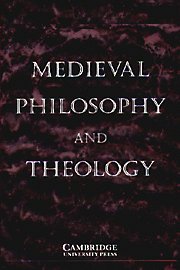No CrossRef data available.
Article contents
Al-Ghazālī on Possibility and the Critique of Causality
Published online by Cambridge University Press: 08 May 2002
Abstract
One of the most striking features of speculative theology (kalāam) as it developed within the Ash'arite tradition of Islam is its denial of causal power to creatures. Much like Malebranche in the seventeenth century, the Ash'arites saw this denial as a natural extension of monotheism and were led as a result to embrace an occasionalist account of causality. According to their analysis, causal power is identical with creative power, and since God is the sole and sovereign creator, God is the only causal agent. To assert anything else is to compromise monotheism. This position, of course, was in direct opposition to the prevailing accounts of causality within the philosophical tradition of Islam at the time. The philosophers (falāasifa) had by and large taken over accounts of causality from Aristotle and the Neoplatonists and adapted them in accordance with their own set of concerns. In such accounts, while God stands as the first cause, secondary causation—the causative action of agents other than God—is unambiguously affirmed, even if variously understood. Thus, as they offered a sophisticated account of causal action in direct opposition to the occasionalist thesis, the falāasifa posed something of challenge to the theologians.
- Type
- Research Article
- Information
- Copyright
- © 2001 Cambridge University Press




